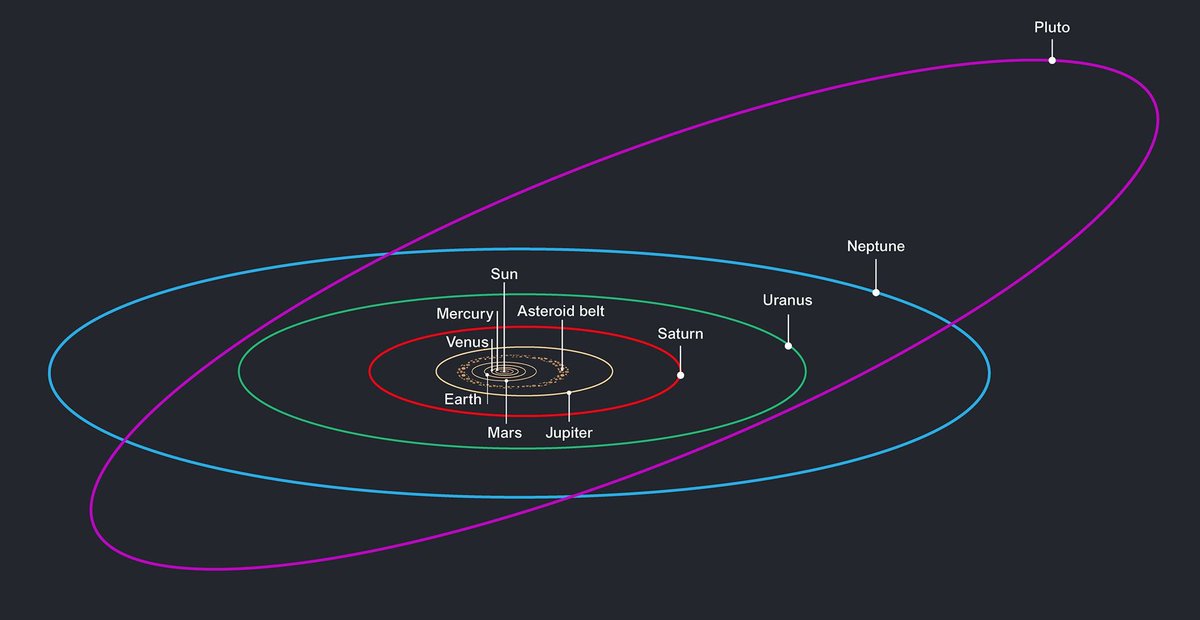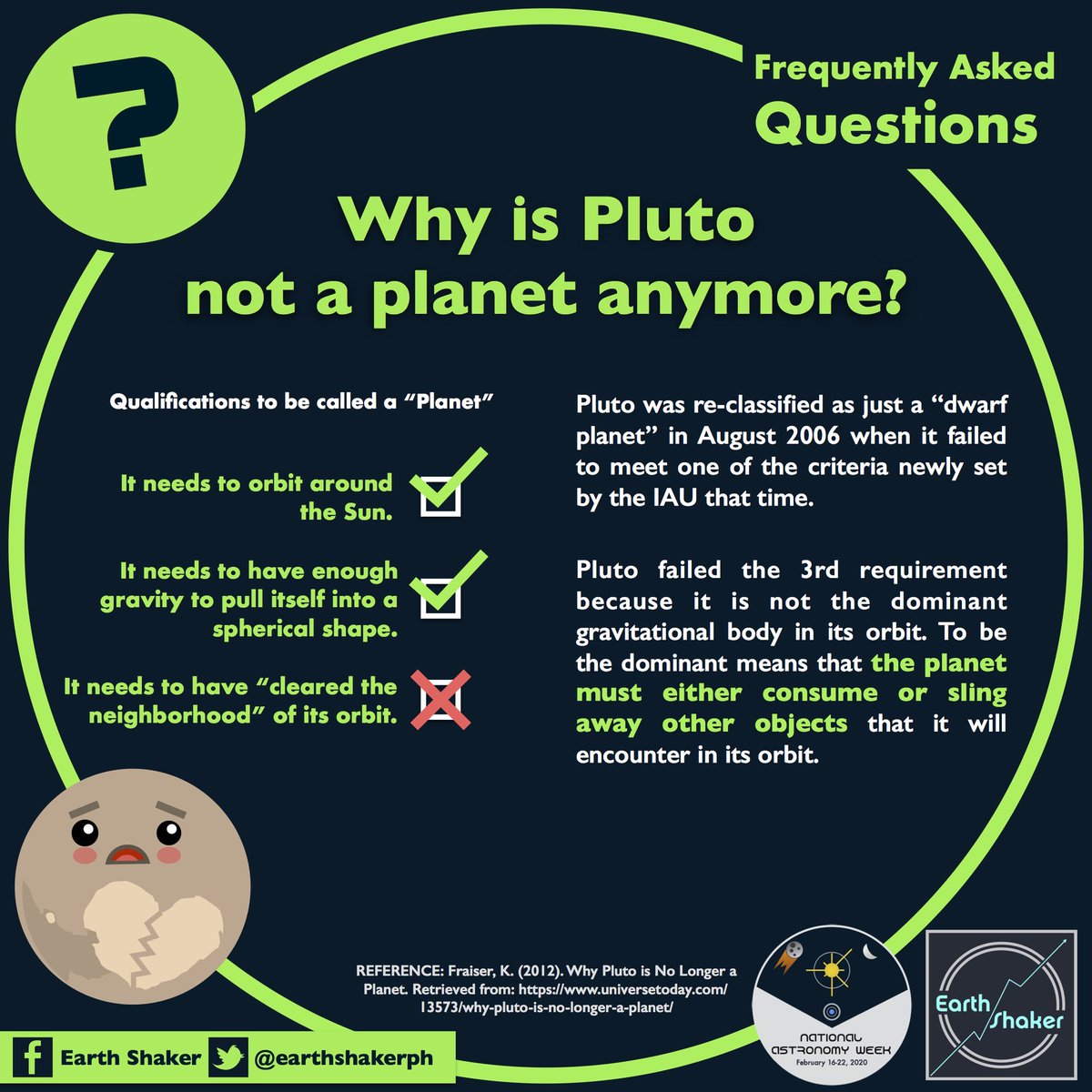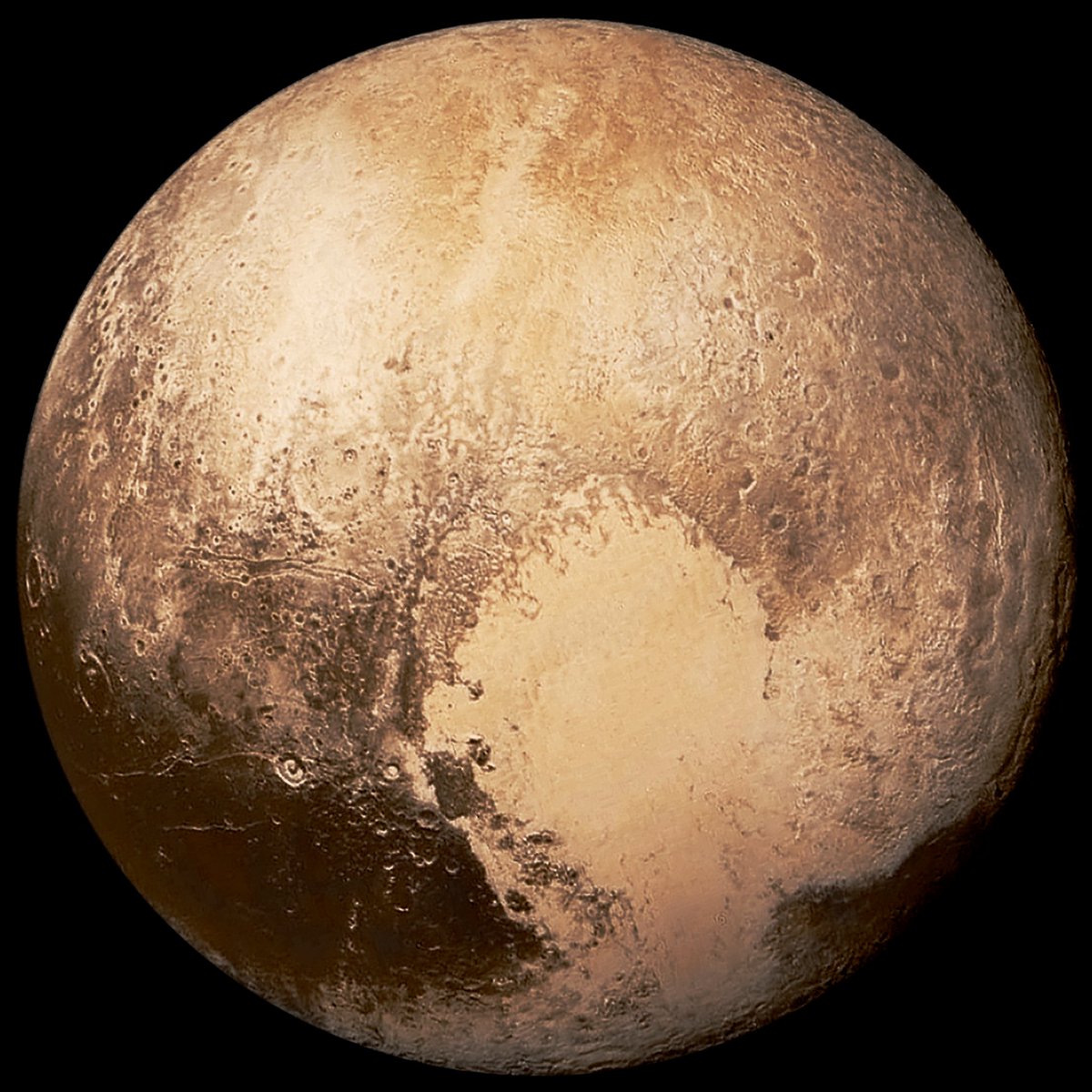The Pluto Planet Debate:
(1)
(1)
You may remember in 2006, the International Astronomical Union (IAU) decided to “reclassify” Pluto and revoke its planet status to a “dwarf planet.”
To this day, people don’t seem to understand what the fuss is all about or even WHY Pluto was demoted.
(2)
To this day, people don’t seem to understand what the fuss is all about or even WHY Pluto was demoted.
(2)
Pluto was discovered in 1930 by Clyde Tombaugh when he observed the sky on multiple nights and noticed a tiny dot that appeared to drift back and forth against the other stars.
Pluto was definitely a strange planet; it had such an eccentric orbit that sometimes it would...
(3)
Pluto was definitely a strange planet; it had such an eccentric orbit that sometimes it would...
(3)
get closer to the Sun than Neptune for a portion of its orbit. (The criss-cross between Neptune and Pluto’s orbit is very strange).
(4)
(4)
In the early 90s, scientists would discover what were called “Kuiper Belt objects.” These were bodies that were orbiting beyond Pluto. Soon, many more would be discovered, but nothing significant came of it until 2005, when astronomers discovered Eris, which was thought...
(5)
(5)
to be bigger than Pluto.
This put a large question into the minds of scientists at the time: Should Eris be a planet as well? What about all the other Kuiper Belt objects?
The line for what was considered a “planet” was blurred.
(6)
This put a large question into the minds of scientists at the time: Should Eris be a planet as well? What about all the other Kuiper Belt objects?
The line for what was considered a “planet” was blurred.
(6)
After intense debate among scientists at the IAU, it was decided that Mercury-Neptune would keep their planetary status, but sadly Pluto would not.
Pluto and the objects that shared their orbits with others, would henceforth be known as “dwarf planets.”
(7)
Pluto and the objects that shared their orbits with others, would henceforth be known as “dwarf planets.”
(7)
Believe it or not, many professionals did not like the decision.
Alan Stern, a leader of the New Horizons mission to Pluto stated that “less than 5 percent of the world’s 10,000 astronomers had participated in the vote.”
(8)
Alan Stern, a leader of the New Horizons mission to Pluto stated that “less than 5 percent of the world’s 10,000 astronomers had participated in the vote.”
(8)
Let’s discuss what makes a planet a “planet.”
In order for something to be considered a “planet,” it has to meet these three criteria:
1. Orbits a star (the Sun in this case)
2. Must be big enough to have enough gravity to form a nearly spherical shape
(9)
In order for something to be considered a “planet,” it has to meet these three criteria:
1. Orbits a star (the Sun in this case)
2. Must be big enough to have enough gravity to form a nearly spherical shape
(9)
3. Cleared the neighborhood around its orbit.
Where Pluto fails is number 3. Essentially, “clearing the neighborhood” means that the planet in question has to be the dominant gravitational body in its orbit around a star.
This means it cannot have other objects in its orbit.
(10)
Where Pluto fails is number 3. Essentially, “clearing the neighborhood” means that the planet in question has to be the dominant gravitational body in its orbit around a star.
This means it cannot have other objects in its orbit.
(10)
Pluto does not meet this criteria because of the many smaller (and larger) Kuiper Belt objects in its orbital path. In order for it to be considered a “planet” in this sense, it should be able to deflect debris with its mass. (But, alas, Pluto is a baby and can’t do that).
(11)
(11)
Let’s get back to the outcry after the decision was made.
There were even alternative classification methods were made. In 2017, a proposal defined a planet as a “round object in space that’s smaller than a star.”
However, this failed because this would make many other...
(12)
There were even alternative classification methods were made. In 2017, a proposal defined a planet as a “round object in space that’s smaller than a star.”
However, this failed because this would make many other...
(12)
objects in the Solar System planets, including the moons.
This would make the total number of planets in the Solar System 110.
To this day, there are still scientists that argue against the IAU definition.
There are even scientists that still refer to Pluto as a planet
(13)
This would make the total number of planets in the Solar System 110.
To this day, there are still scientists that argue against the IAU definition.
There are even scientists that still refer to Pluto as a planet

(13)
@plutokiller had some interesting tales on the debate as well, but based on his Twitter handle, we know what side he’s on 
(14)

(14)
So that’s really it. Pluto will forever be in our hearts.
Let me know what you think!
Is Pluto a planet?
Let me know what you think!

Is Pluto a planet?

 Read on Twitter
Read on Twitter




